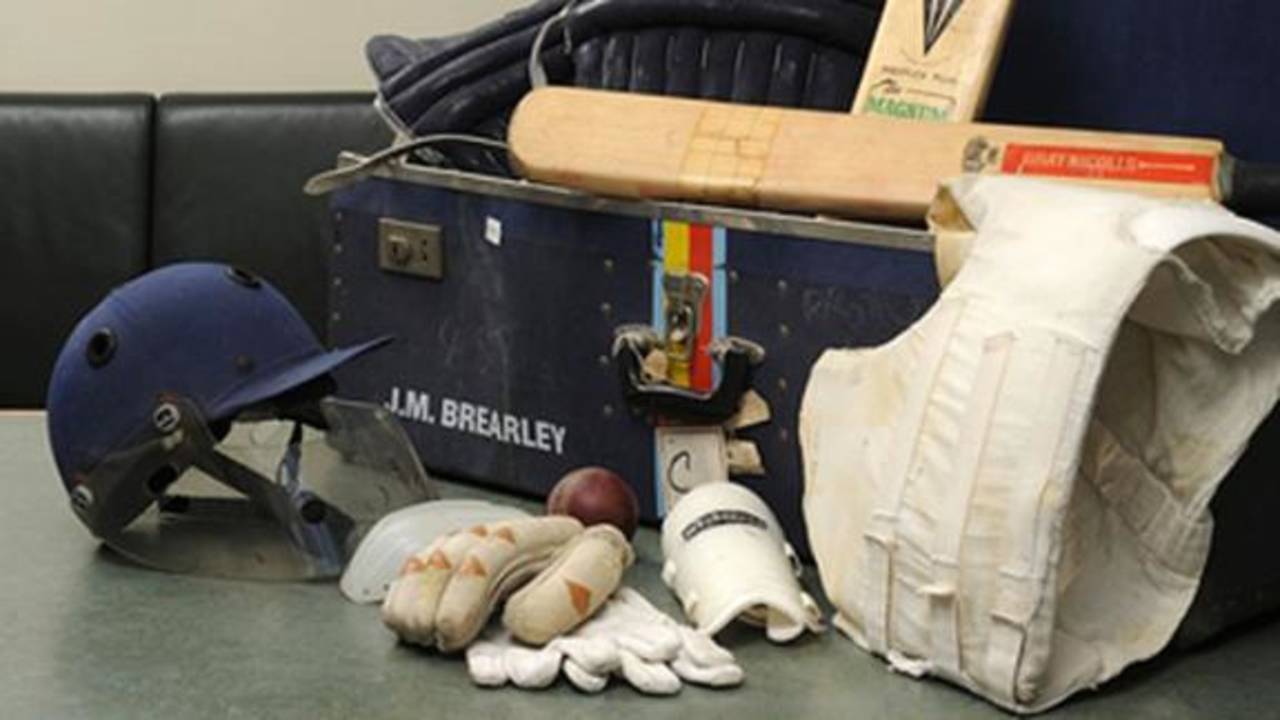MCC wants change on 'umpire's call' lbws
The MCC World Cricket Committee has welcomed the development of technology that could allow the third umpire to call no-balls, and it has also recommended that fielding teams should not lose a review for lbw decisions in the "umpire's call" zone
ESPNcricinfo staff
27-Nov-2015
The MCC World Cricket Committee has welcomed the development of technology that could allow the third umpire to call no-balls, and it has also recommended that fielding teams should not lose a review for lbw decisions in the "umpire's call" zone. The committee has also commissioned a report into the balance between bat and ball, and specifically highlighted the quality and size of modern bats as an area of concern.
It was the World Cricket Committee, an independent think-tank made up largely of former international cricketers, that six years ago recommended serious consideration be given to playing day-night Tests. The current committee, chaired by Mike Brearley, met this week in Adelaide in the lead-up to the inaugural day-night Test between Australia and New Zealand, and technology was a key part of the discussion.
"The committee received a report from Simon Taufel on technology designed to allow front foot no-balls to be monitored by the third umpire," the World Cricket Committee said in a statement. "It felt that a fast, automated system for the calling of front-foot no-balls would be a welcome enhancement to the game.
"The committee also debated the 'umpire's call' for lbws and felt there should be no loss of a review for the fielding side if the ball is shown to be clipping the stumps in the umpire's call zone; this could then allow the removal of the reallocation of two reviews after 80 overs."
The committee also discussed whether there should a be a limit to the size of the edges and overall depth of cricket bats. It said that the dimensions and quality of bats had started to distort the game but recognised that other elements such as boundary sizes, shot selection, player fitness, quality of pitches and behaviour of balls also played a part.
"It was decided that further game-wide consultation is needed and has commissioned a report to be written and brought back to the committee for its next meeting, at Lord's, in July 2016," the committee said.
It also said it would monitor the success of the ECB's recently-announced trial in which the away team will be given first chance to bowl first in county matches, and the toss will only take place if they decline to take the bowl-first option. If such a change made it to Test cricket it could alter the dynamics of home-ground advantage; the committee said it was concerned that too much advantage currently sat with the home team.
"The MCC World Cricket committee is concerned that home advantage in Test Cricket now carries too much significance," it said. "In the last three years, over 70% of Test victories have been achieved by the home team.
"There are other factors contributing to this trend, such as shorter tours and a lack of adequate player preparation in local conditions, but there are indications that pitches are increasingly being prepared to suit the home team. The committee would like to see a game-wide agreement that ground authorities be left alone to produce pitches that reflect local conditions whilst encouraging a fair balance between bat and ball."
And, not for the first time, the committee expressed its strong desire for a World Test Championship to take place in an effort to provide greater context for all international cricket. Most ODIs should also count towards qualification for the next World Cup, the committee said.
"The committee believes that the game needs to address these issues as a priority," it said. "In so doing so, more thought needs to be given to how the game to distinguish and market the three formats to ensure that they complement each other in a highly competitive market place."
